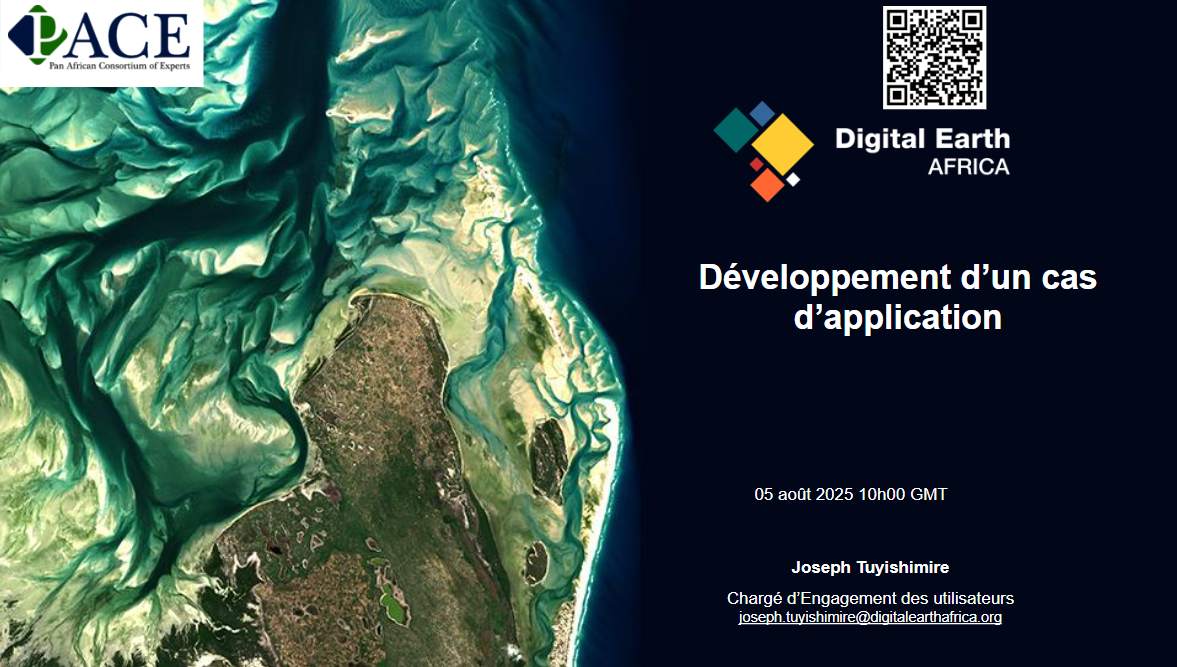Satellite imagery is one of Africa’s most valuable resources. Rich, freely accessible, and capable of transforming how we manage land, water, agriculture, and cities. Yet, without the right skills and tools, its potential often remains untapped. To bridge this gap, Digital Earth Africa (DE Africa) and the Pan African Consortium of Experts (PACE) are collaborating closely to accelerate the adoption of geospatial technologies in Senegal.
DE Africa is a continent-wide data infrastructure making Earth observation (EO) data decision-ready and freely available for all of Africa. From tracking water scarcity to monitoring land degradation and food security, DE Africa equips governments, researchers, and communities with actionable insights to make inclusive, evidence-based decisions.
PACE, a think tank of African and diaspora experts, shares a similar mission. To foster sustainable development through knowledge, innovation, and policy influence. By combining DE Africa’s technology with PACE’s expertise and networks, the partnership is strengthening capacity across universities, research centres, ministries, and local administrations in Senegal.
Between July and August 2025, DE Africa and PACE co-organized a five-part workshop series tailored to Senegal’s development priorities. The sessions explored the use of Earth observation in agriculture, water resource management, urban growth, and coastal resilience, with practical demonstrations on how to apply DE Africa’s platforms to local challenges.
So far, the program has attracted over 130 registrations, reflecting the growing demand for practical EO training across Senegal. Participants gained hands-on skills in crop monitoring, water resource mapping, and urban growth analysis, as well as an introduction to machine learning applications for tracking progress on the Sustainable Development Goals (SDGs).
Speaking at the launch of the series, Dr. Seydina Ousmane Sene, Executive Director of PACE and member of DE Africa’s Technical Advisory Committee, underscored the transformative role of EO in Africa’s development: “Digital Earth Africa exemplifies how Fourth Industrial Revolution technologies can foster widespread socioeconomic development. By democratizing the processing and analysis of satellite data, DE Africa empowers countries to make more informed, strategic, and inclusive decisions on issues ranging from water scarcity to food security.”
This engagement comes to amplify DE Africa’s impacts in Senegal and the Sahel Region, which has mostly gone via CSE as our implementing partner, especially for the development of the coastlines services and the wetlands workflow, their dissemination among WACA/ORLOA Countries and related capacity building.
The collaboration between DE Africa and PACE reflects a shared commitment to Africa’s Agenda 2063 and the UN SDGs. By strengthening technical capacity and enabling open access to decision-ready data. The partnership is equipping Senegalese institutions with the tools they need to design resilient policies, build trust in public decision-making, and unlock sustainable growth.
 English
English  Português
Português  Français
Français  العربية
العربية 